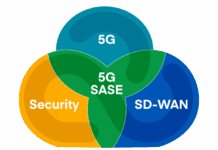OVH, one of the top largest cloud computing providers in the world, has released its third set of findings from the OVH Barometer on the Digital Society. The barometer polled 2,000 residents of both Ontario and Quebec (1,000 in each province) for their thoughts and feedback on sharing data in the digital economy.
Sharing of personal data
When asked under which circumstances Ontarians would share their personal data, the following were the results:
-42 per cent said to improve or guarantee their personal safety
-33 per cent said to improve travel time
-32 per cent said to save time daily (online shopping, invoice payment etc.)
-29 per cent said to avoid line ups
-27 per cent said to improve their dialogue/interaction with public services
-While 39 per cent hope they never have to share their personal information
“The results pertaining to personal data are interesting because while there’s a belief that technology has clear benefits, Ontarians are still hesitant to relinquish their personal information, even for the greater good,” says Guillaume Gilbert, communications officer, at OVH. “Technology and the way we use it is changing fast and it will be interesting to see how the opinions of residents change over the next five years.”
The barometer also examined the use, or potential use, of digital tools and data in public services to gauge both interest and demand.
Ontarians believe access to public data is key to enhanced democracy
When respondents were asked if public data enhanced democracy, responses in both Ontario and Quebec were overwhelmingly aligned, with 85 per cent indicating that access to economic, social and other information on their city or province would enhance democracy. Interestingly, the older population in Ontario (55+) was the highest age group (30 per cent) who felt that democracy would be enhanced “a lot” with access to public information, while those making $100K+ also skewed the highest, at 33 per cent.
Digital tools for public institutions
According to the barometer, when asked if digital tools would be preferred when dealing with public institutions at the provincial or municipal level, an overwhelming 92 per cent of respondents in Ontario said they would be useful or somewhat useful. Ironically, millennial respondents were less inclined to find these digital tools useful, compared to older respondents aged 55+, although only two per cent of all respondents said they would not be useful at all.
Best use of technology in a city?
Overall in Ontario, respondents found public safety, including emergency services, came in first at 37 per cent. Second was public transit at 30 per cent. Infrastructure, such as public works, came in at 19 per cent, while urban development took up the rear at 14 per cent. Interestingly, those residing in Ottawa thought technology was best used with public transportation (43 per cent), while 38 per cent of Torontonians gave the TTC top marks, those sentiments were particularly strong among those 18-34 years of age.
Top digital apps
In Ontario, the digital apps most sought after were:
An app that reveals your geographic location, as well as nearby emergency services in the event of a breakdown or accident (37 per cent)
An app that reports dangerous conditions or obstacles on the road (24 per cent)
An app listing all free and paid parking locations near you (21 per cent)
An app that gives you all available modes of transportation (bus, train plane etc.) and costs to travel (18 per cent)
The City of the Future: Digital management of shared spaces
The majority of Ontarians (80 per cent) felt that it was important or very important for public institutions to invest in digital management systems to better gauge energy use, lighting and sensors etc. Of the age groups, millennials led the way with 61 per cent finding this important, as opposed to 48 per cent of those between the ages of 25 and 54.














